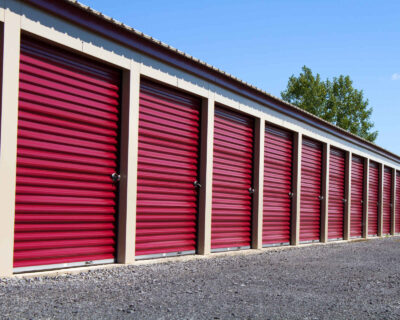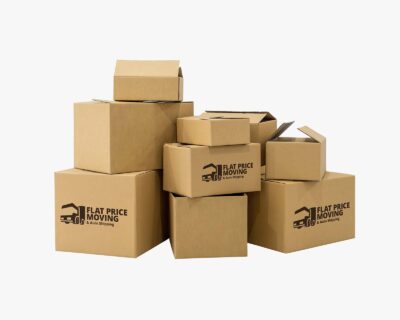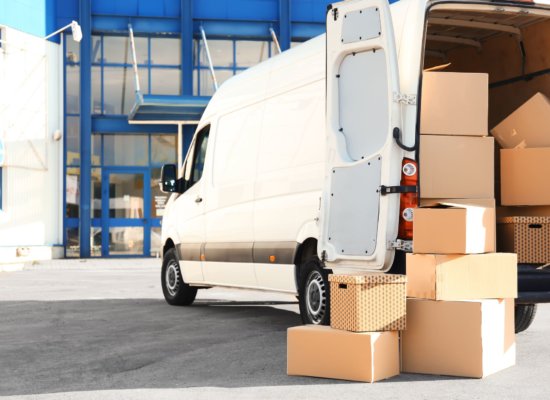Top Questions to Ask When Shipping a Car Across the Country
Are you planning to ship your car across the country? Whether you’re relocating, selling a vehicle, or simply avoiding a long-distance drive, entrusting your vehicle to an auto transport company can be a convenient and efficient solution. Here are all the questions to ask when shipping a car, so you can gather all the necessary information to ensure a smooth and successful transportation process.

Finding a reputable car shipping company involves conducting thorough research, seeking recommendations, checking credentials, verifying insurance coverage, and reading customer reviews. Comparing quotes, considering experience, and seeking references are essential steps. By investing time in research and due diligence, you can ensure a reliable and trustworthy auto transport service to transport your vehicle safely across the country.
How Do I Find a Reputable Car Shipping Company?
Finding a reputable car transport company requires careful research and consideration. Begin by conducting thorough online research, looking for companies with positive customer reviews and high ratings. Seek company recommendations from friends, family, or colleagues who have had positive experiences with auto transport services. Request quotes from multiple companies and compare their prices, services offered, and additional relocation benefits or guarantees.
What Should I Look For to Verify Company Credentials and Reputation?
When verifying the credentials and reputation of a company, there are key factors to consider. First, check if the company is legitimate and properly licensed, ensuring compliance with industry regulations. Look for membership in reputable associations like the Better Business Bureau or American Moving and Storage Association, which reflect a commitment to high standards.
Read customer reviews and ratings to gain insights into the company’s reputation and customer satisfaction. Request references from previous customers to directly inquire about their experiences. Evaluate the company’s experience and track record, as well as their insurance coverage to protect your vehicle during transportation. By considering these factors, you can verify their credentials and reputation and make an informed decision when choosing a reliable company and trustworthy provider.

What Are the Different Shipping Methods and Options Available?
When it comes to transporting a vehicle, there are various methods and options available to cater to different needs and preferences. Understanding the different transportation methods and options is crucial in selecting the most suitable approach for transporting your vehicle. From open to enclosed carrier transportation, each method offers its own benefits and considerations.
Additionally, choices regarding door-to-door service versus terminal-to-terminal service can impact convenience and cost. By exploring the available methods and options, you can make an informed decision and ensure the safe and efficient transport of your vehicle to its desired destination.
What Is the Difference Between Door-to-Door Service and Terminal-to-Terminal Service?
When transporting a vehicle, you will often come across two common service options: door-to-door service and terminal-to-terminal service. Understanding the difference between these options will help you make an informed decision based on your preferences and requirements.
Door-to-door service is a convenient option where the auto transport company picks up your vehicle directly from your specified location, such as your home or office, and delivers it to the destination address you provide. This service saves you time and effort, as the transport company handles all logistics and transportation arrangements. It offers a hassle-free experience, especially if you have limited time or prefer minimal involvement in the process.
In contrast, terminal-to-terminal service requires you to drop off your vehicle at a designated terminal or depot and pick it up from another terminal at the destination. This option is generally more cost-effective, as it eliminates the need for the auto transport company to navigate residential areas for pick-up and delivery. Terminal-to-terminal service may be suitable for those who are willing to manage the additional logistics and transportation arrangements themselves.
When choosing between these two options, consider factors such as convenience, cost, and availability to coordinate drop-off and pick-up at the terminals. It’s important to discuss these options with the provider to determine which service aligns best with your needs and preferences.
| Door-to-Door Service | Terminal-to-Terminal Service | |
|---|---|---|
| Convenience | Convenient and time-saving | Requires additional coordination |
| Cost | Generally higher cost due to added convenience | More cost-effective option |
| Time Commitment | Less time and effort required from your end | Requires coordination for drop-off and pick-up |
| Pick-up and Delivery | Vehicle picked up at your specified location | Vehicle dropped off and picked |
| Availability | Widely available in most areas | Availability may vary depending on terminal locations |
| Logistics Management | Auto transport company manages all logistics | You handle drop-off and pick-up at terminals |
| Vehicle Tracking | Usually offers tracking services for real-time updates | Tracking may vary depending on terminal facilities |
How Long Will the Shipping Process Take, and Is There Flexibility in Delivery Dates?
The duration of the process can vary depending on multiple factors. The distance between the origin and destination is a significant factor, with longer distances usually requiring more time for transportation. The specific route, potential detours, and carrier availability also influence the overall time frame. A long-distance moving company typically provides estimated timeframes, but it’s important to remember that these are estimates and can be subject to unforeseen circumstances.
As for delivery dates, many companies offer a window of time during which your vehicle is expected to be delivered. This window allows for some flexibility to accommodate potential delays or unexpected situations during transit. It’s recommended to discuss delivery dates and flexibility options with the long-distance movers to align expectations and make appropriate arrangements.

How Can I Obtain Comprehensive Quotes for Car Shipping?
Obtaining comprehensive quotes for auto transport and long-distance moving services is an essential step in making informed decisions and accurately assessing the moving costs involved. To obtain comprehensive quotes, start by collecting all the necessary information about your vehicle, such as make, model, year, dimensions, and current location.
Reach out to several reputable auto transport companies and provide them with this information, along with details such as the destination, preferred transport method, desired pickup and delivery dates, and any additional services required. Be prepared to answer any questions they may have about your vehicle or specific transportation needs.
Compare the quotes received, considering not only the price but also the reputation, experience, and services provided by each company. By gathering comprehensive quotes, you can select an auto transport company that meets your requirements and provides a fair and accurate estimate for your vehicle transportation.

What Factors Influence the Cost of Shipping a Car?
The cost of auto transport can vary based on several factors. Understanding these factors will help you better estimate and evaluate the overall cost of transporting your vehicle. Here are some key elements that influence the cost:
- Distance – The distance between the origin and destination is a significant factor. Generally, longer distances require more time, fuel, and resources, which can contribute to higher costs.
- Vehicle size and weight – The vehicle’s weight and size are important. Heavier or larger vehicles may require specialized carriers or equipment, which can increase the overall cost.
- Transportation method – The chosen method, such as open carrier or enclosed carrier, can impact the cost. Enclosed carriers, offering more protection, are usually more expensive than open carriers.
- Pickup and delivery locations – The specific locations for pickup and delivery play a role in the cost. Remote or less accessible areas may require additional logistics, increasing the overall expenses.
- Time of year and demand – Seasonal fluctuations and demand can affect pricing. High-demand periods, such as moving in summer, may lead to higher costs due to limited carrier availability.
- Additional services – Any additional services you request, such as expedited transport, door-to-door service, or storage options, may come with extra charges that influence the overall cost.
- Insurance coverage – The level of insurance coverage provided by the relocation company can affect the cost. Higher coverage limits or added insurance options may result in a higher price.
What Are the Payment Terms and Accepted Payment Methods?
Payment terms and accepted payment methods can vary among transport companies. Typically, companies require a deposit upfront, with the remaining balance to be paid upon delivery of the vehicle. Accepted payment methods commonly include bank transfers, credit cards, cashier’s checks, or money orders.
Some companies may also accept payment through digital platforms or online payment systems. It’s important to discuss payment options with the company, ask any questions you may have, and confirm their preferred method. Understanding the payment terms and accepted payment methods will help ensure a smooth and efficient move.

What Insurance Coverage Is Provided by the Shipping Company?
When transporting a car, it’s crucial to understand the insurance coverage provided by the transport company. Reputable companies typically offer insurance to protect your vehicle during transit. The extent of coverage can vary among different companies, so it’s important to clarify the details.
Most companies provide what is known as “carrier liability insurance.” This coverage is designed to protect your vehicle against damage, loss, or other car shipping mistakes caused by the carrier’s negligence or fault. It typically provides coverage based on the weight of the vehicle or a set dollar amount per pound. Make sure to inquire about the specific coverage limits and deductibles associated with this insurance.
In addition to carrier liability insurance, some companies may offer additional insurance options. These may include “supplemental insurance” or “additional coverage” that provides higher coverage limits or protect against specific risks, such as damage from natural disasters, theft, and other moving mistakes. However, these additional insurance options often come at an extra cost.
It’s crucial to thoroughly review the insurance policy and understand its terms and conditions. Pay attention to any exclusions or limitations that may apply. In case of damage or loss during transit, report it immediately to the transport company and follow their procedures for filing a claim.
Does My Personal Car Insurance Cover the Car During Transit?
Whether or not your personal car insurance covers your vehicle during transit depends on your specific insurance policy. In general, personal insurance typically does not extend coverage while your vehicle is being transported on a carrier. Personal insurance is designed to provide coverage while the vehicle is being driven, not during transit.
It’s essential to review your policy or consult with your insurance provider to understand the extent of coverage during the relocation process. Relying on the insurance coverage provided by the company is typically the best option to ensure adequate protection for your vehicle during transit.

How Should I Prepare My Vehicle for Shipping?
Properly preparing for a move includes preparing your vehicle for shipping. That way, you can ensure a smooth and safe move. Start by thoroughly cleaning both the interior and exterior of your vehicle to facilitate a clear pre-shipment inspection. Remove all personal belongings from the vehicle, as the transport company typically requires an empty vehicle. Check your vehicle for any mechanical issues and address them beforehand.
Document any pre-existing damage with detailed photos and written notes to serve as evidence in case of disputes. Secure or remove loose parts, retract or secure mirrors, and ensure the fuel tank is at the appropriate level as per the company’s guidelines. By following these steps and relocation tips, you can help ensure that your vehicle is well-prepared for shipping, minimizing the risk of damage and ensuring a smooth transportation process.
Storage Service
Knowing what kind of surprises cross country move may hold, we offer 30 day free storage for belongings at the origin state.
Read morePacking Services
Our moving teams are trained to pack your belongings in the most efficient manner possible.
Read moreAuto-Transport
If your first concern is having your vehicle transported safely and efficiently, enclose shipping is the way to go.
Read moreWhat Should Be Included in the Pre-Shipment Inspection and Documentation?
When preparing your vehicle for relocation, conducting a pre-shipment inspection and documenting the condition of your vehicle is crucial. This process involves thoroughly inspecting your vehicle for any existing damage and documenting it in detail. Take clear and comprehensive photos of your vehicle from various angles, focusing on any scratches, dents, or other imperfections.
Note down the condition of your vehicle in writing as well. This documentation serves as evidence of the vehicle’s condition before transport and can be essential in the event of any damage claims that may arise during transportation. By performing a thorough pre-shipment inspection and documenting the condition of your vehicle, you can have peace of mind knowing that you have a record of its condition prior to shipping.

Is There a Tracking System to Monitor the Progress of the Shipment?
Many reputable car shipping companies provide a tracking system that allows you to monitor the progress of your vehicle during transit. This tracking system utilizes technology such as GPS to provide real-time updates on the location and status of your shipment. It enables you to stay informed about the whereabouts of your vehicle, providing peace of mind and allowing you to plan accordingly.
With the tracking system, you can easily track the progress of the shipment and have a better idea of when to expect the delivery of your vehicle. It’s recommended to inquire about the tracking system offered by the company and understand how to access and utilize it to stay informed throughout the transportation process.
How Can I Stay Informed About Key Checkpoints or Milestones During Transit?
To stay informed about key checkpoints or milestones during transit, it’s important to maintain open communication with the transport company; it will make your move easier. They can provide updates on the progress of your shipment and notify you about any significant milestones or changes. Regularly reach out to the company’s customer service or your assigned contact person to inquire about the status of your vehicle. Additionally, some companies provide automated notifications or periodic updates to keep customers informed.
These updates may include notifications about pick-up, departure, arrival at key checkpoints, or estimated delivery dates. It’s advisable to discuss with the shipping company the preferred method of communication and ensure you have the necessary contact information to stay connected throughout the transit process. By actively staying in touch with the movers, you can receive timely updates and have a clear understanding of the progress of your vehicle’s transportation.

Ask All the Questions and Shipping Your Car Will Go Without a Hitch
In conclusion, asking all the necessary questions and gathering relevant information when transporting your car is essential to ensure a smooth and stress-free transportation process. By understanding factors such as pricing, insurance coverage, shipping methods, preparation requirements, and tracking options, you can make informed decisions and choose a reputable company that meets your specific needs.
Of course, with the right transport company, such as Flat Price Auto Transport and Moving, you don’t need to ask a lot of questions. Just contact us and rely on our professional moving services to handle every aspect of your move, from packing services to vehicle transportation. So, hire our movers, ask your questions, and embark on your vehicle transport journey with confidence, knowing that you’ve taken the necessary steps for a successful move.









